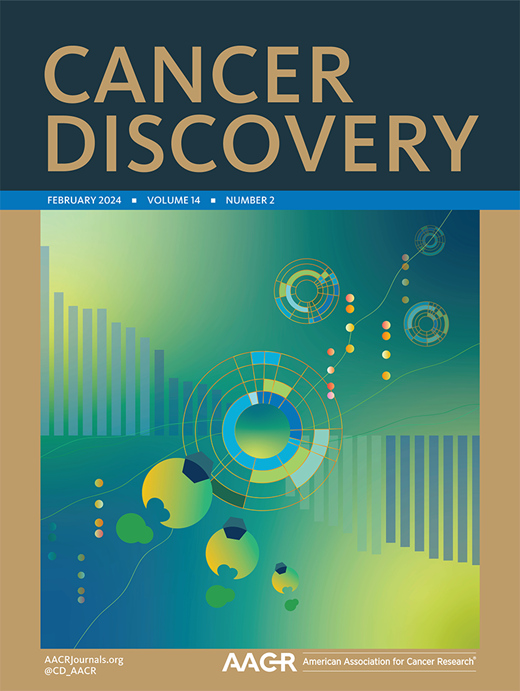Development and Prospective Validation of a Cell-free DNA-based Model for the Early Detection of Pancreatic Cancer
IF 33.3
1区 医学
Q1 ONCOLOGY
引用次数: 0
Abstract
Pancreatic cancer (PC) remains a highly lethal malignancy due to late-stage diagnosis and limited therapeutic options. This study presents the development and validation of a non-invasive circulating cell-free DNA (cfDNA)-based model for early PC detection. In a case-control study comprising 232 PC patients and 235 healthy controls, the model demonstrated high diagnostic accuracy (AUC=0.9799 in training; 0.9622 in validation). A prospective cohort study involving 1,926 individuals with diabetes and obesity, established risk factors for PC, further assessed its clinical applicability. The model detected 75% of PC cases, including all Stage 0 patients, with a lead time of up to 298 days, significantly outperforming CA19-9. Additionally, it demonstrates potential for distinguishing high-risk from low-risk pancreatic cysts, thereby facilitating more precise risk stratification. This study highlights the potential of cfDNA-based screening as a scalable, non-invasive tool for early PC detection, warranting further large-scale clinical validation to enhance patient outcomes.胰腺癌早期检测无细胞dna模型的建立及前瞻性验证
胰腺癌(PC)仍然是一种高度致命的恶性肿瘤,由于晚期诊断和有限的治疗方案。本研究提出了一种基于非侵入性循环无细胞DNA (cfDNA)的早期PC检测模型的开发和验证。在232例PC患者和235例健康对照的病例对照研究中,该模型显示出较高的诊断准确率(训练时AUC=0.9799,验证时AUC= 0.9622)。一项涉及1926名糖尿病和肥胖症患者的前瞻性队列研究,确定了PC的危险因素,进一步评估了其临床适用性。该模型检测出75%的PC病例,包括所有0期患者,提前期长达298天,显著优于CA19-9。此外,它显示了区分高风险和低风险胰腺囊肿的潜力,从而促进更精确的风险分层。这项研究强调了基于cfdna的筛查作为一种可扩展的、非侵入性的早期PC检测工具的潜力,需要进一步的大规模临床验证来提高患者的预后。
本文章由计算机程序翻译,如有差异,请以英文原文为准。
求助全文
约1分钟内获得全文
求助全文
来源期刊

Cancer discovery
ONCOLOGY-
CiteScore
22.90
自引率
1.40%
发文量
838
审稿时长
6-12 weeks
期刊介绍:
Cancer Discovery publishes high-impact, peer-reviewed articles detailing significant advances in both research and clinical trials. Serving as a premier cancer information resource, the journal also features Review Articles, Perspectives, Commentaries, News stories, and Research Watch summaries to keep readers abreast of the latest findings in the field. Covering a wide range of topics, from laboratory research to clinical trials and epidemiologic studies, Cancer Discovery spans the entire spectrum of cancer research and medicine.
 求助内容:
求助内容: 应助结果提醒方式:
应助结果提醒方式:


